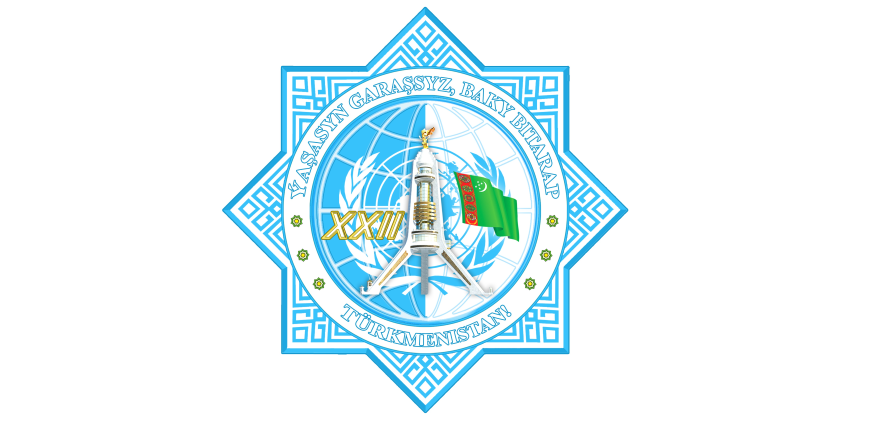
Submitted by P. Kalra on Sat, 09/12/2017 - 08:49
Press Release to mark the 22nd Anniversary of Turkmenistan’s Permanent Neutrality on 12 December
This year marks the 22th anniversary of recognition by the international community of the legal status of permanent neutrality of Turkmenistan in accordance with UN General Assembly Resolution.
For the first time the member states of UN will celebrate International Day of Neutrality on 12 December 2017.
The United Nations General Assembly adopted the resolution declaring 12 December as the International Day of Neutrality initiated by Turkmenistan, followed by another Resolution on 2 February 2017 titled “International Day of Neutrality” at the 71st session of the resolution.
The document states that Turkmenistan’s national policy of neutrality helps to promote peace and security regionally and globally and plays a significant role in developing peaceful, friendly and mutually beneficial relations. According to the resolution, the Assembly also proposes that the Secretary General continue to cooperate closely with neutral states, with a view to implementing the principles of preventive diplomacy and utilizing them in mediation activities.
The initiative to establish International Neutrality Day was launched by the President of Turkmenistan H.E. Gurbanguly Berdimuhamedov at the Ashgabat International Conference devoted to the 20th anniversary of Turkmenistan’s permanent neutrality in December 2015.
Furthermore, it should be noted that on 17 November 2017, the UN General Assembly adopted a resolution “Role of the UN Regional Center for Preventive Diplomacy for Central Asia” under the Agenda item 65 “Peacebuilding and sustaining peace” of 72nd Session. The Draft Resolution was proposed by Turkmenistan and gained support of the UN member states, 57 of which acted as co-sponsors. Regional Centre for Preventive Diplomacy for Central Asia is a unique structure of the UN peace-making activity.
The Regional Centre for Preventive Diplomacy for Central Asia was established on 10 December 2007. Since then, the Centre has been providingGovernments with a platform to discuss the most challenging regional issues including the management of common resources, transnational threats such as terrorism and violent extremism, organized crime, illegal drugs and other forms of trafficking.
Over 20 years of permanent neutrality of Turkmenistan is a significant factor and effective system of international security in the region and the world, as well as an effective foreign policy as a model for successful and independent development of the state.
The mechanism of recognition of Turkmenistan's neutrality was an unique in the history of world politics. Today Turkmenistan is the only state, with the status of permanent neutrality which was recognized by the UN. On 12 December 1995 185 member states of the international community voted unanimously for the adoption by the General Assembly of the resolution “Permanent Neutrality of Turkmenistan”. Thereby the guarantor of neutrality has become this major international organization.
Describing the importance of the recognition of Turkemnistan’s neutral status in the context of foreign policy building strategy, President of Turkmenistan H.E. Gurbanguly Berdimuhamedov emphasized: “Without exaggeration it is a historical event which became a reference point of our entire follow up on the international scene, defined the principles of relations with other nations and states”.
The status of permanent neutrality of Turkmenistan based on a strict and absolute adherence to the letter and spirit of the Constitution, UN Charter and the undertaken international obligations, gained credibility and trust among other states and will create favourable external conditions for internal stability and sustainable development.
Turkmenistan voluntarily accepted the status of permanent neutrality as a result of the conviction that this wais the key to independence and sovereign development. It is the neutrality that had enabled the country to select the most productive areas of cooperation in the formation of the modern security system, mechanisms for the peaceful, political solution to the regional and international conflicts to prevent and control risks and threats.
